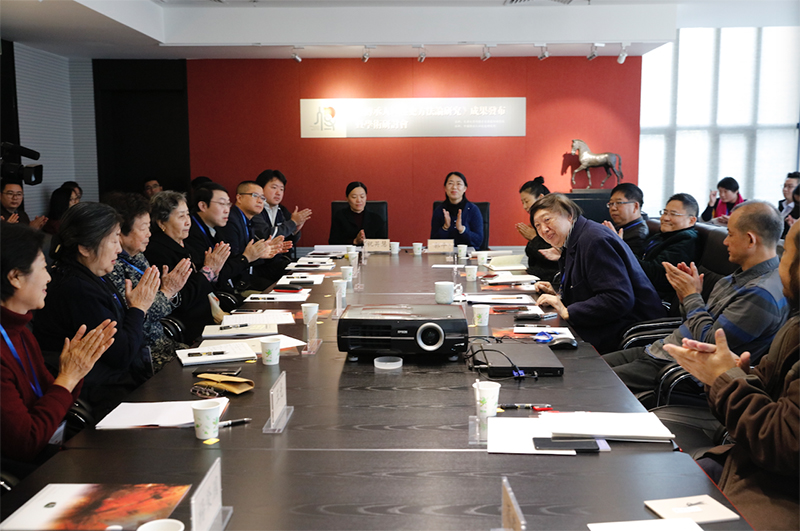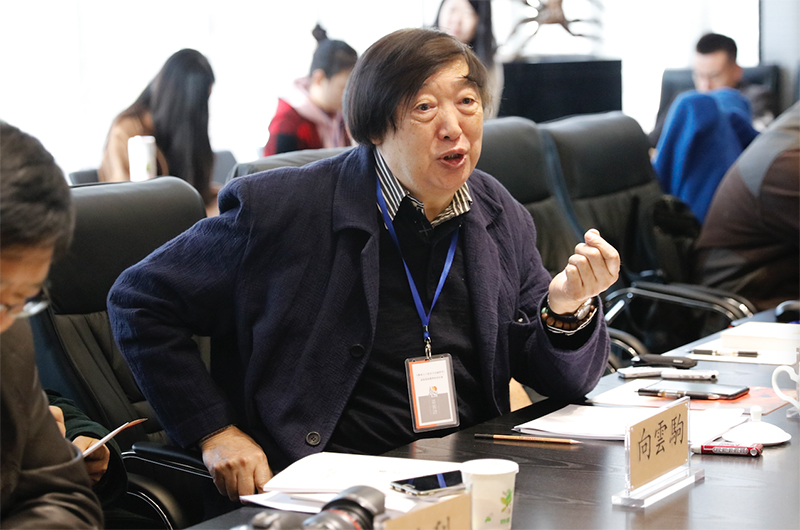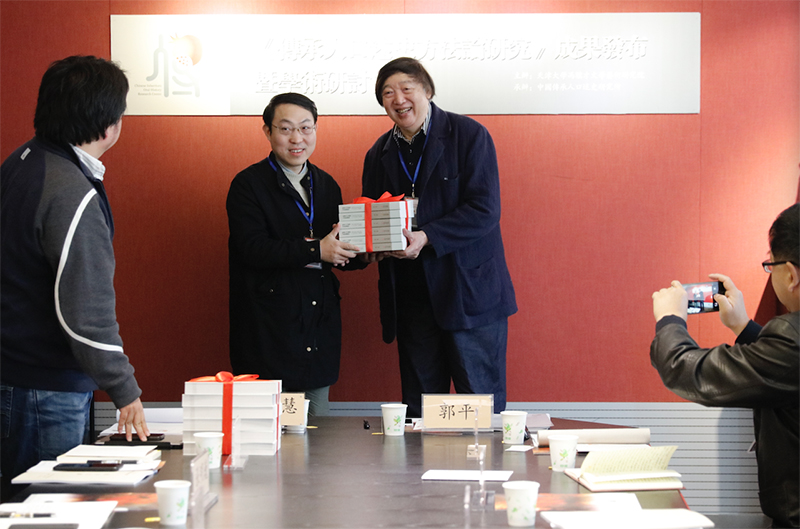
Experts and scholars at the meeting
On November 8, “Methodological Research on Inheritors’ Oral History and Evolution”, which is the first monograph of its kind in China, was officially published by the Feng Jicai Research Institute of Literature and Art at Tianjin University. This is a considerable achievement for the National Social Science Fund project. At the same time, about 20 experts and scholars in the fields of history, anthropology, folklore, art, and sociology from all over the country, gathered at Tianjin University to discuss and contribute to the theory of Inheritors’ Oral History.

Feng Jicai delivered a speech
Today, there are a variety of excellent works of oral history. However, oral history has numerous categories, such as history, anthropology, intangible cultural heritage, literature and journalism. Different oral history categories have their own characteristics. The authors and researchers of oral history from different standpoints have different understandings of the topic. In this regard, is it possible for oral history of different categories to have a unified theory? Providing a platform for comparisons, speculation and communication by experts of oral history in different categories to discuss theoretical problems of oral history is an attempt to achieve this.
This discussion also attempted to gather intelligence from the experts and scholars of various categories in oral history, and to provide experience and suggestions for the inheritors’ oral history theory building. “Inheritors’ oral history” was a new academic concept, which was first put forward by Dean Feng Jicai together with his team in the 15-year process of salvaging the Chinese folk-culture legacy. Thereupon, the Research Center of Chinese Inheritors' Oral History came into being at the Feng Jicai Research Institute of Literature and Art at Tianjin University.
During the discussion, Feng Jicai explained in detail the “Inheritors’ oral history”. He said: “Different from tangible cultural heritage, intangible cultural heritage was kept in the person and in the mind of inheritors. It has historically been inherited by means of oral instruction and rote memory without written text. However, with the transformation of society, intangible cultural heritage was increasingly endangered, which required recording the ‘uncertain’ memories, skills and artistry into ‘certain’ text, to keep intangible cultural heritage as cultural archives. The oral history method is necessary to rescue and preserve intangible cultural heritage, and this is how the new concept of inheritors’ oral history came into being.”

Feng presented books as gifts to the National Library of China, Cui Yongyuan Oral History Research Center and Oral History Institute at Wenzhou University
By: Fang Xueqing, Peng Shiyue
Editors: Sun Xiaofang and Ross Colquhoun






